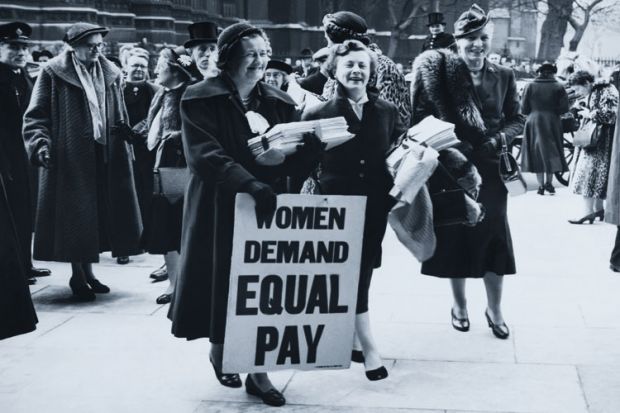Source: Getty
Incremental steps: the pay gap at Cambridge has closed by £110 in two years
Female academics at one of the few universities to regularly publish figures on the gender pay gap are still earning thousands of pounds less than men and miss out on millions of pounds in additional payments each year, according to a report.
Women on academic contracts at the University of Cambridge earn on average £8,400 less than men each year, says the institution’s Equal Pay Review 2014. The pay gap has closed by just £110, or 0.4 percentage points, since the previous review two years ago.
The university said that it is making “positive progress” in addressing the pay gap and added that it is doing better than the national average.
Cambridge has been conducting equal pay reviews since 2008 and is one of only a handful of institutions that has regularly looked at the issue.
The latest review suggests that the mean annual academic salary for men is £62,538, compared with £54,108 for women – a 13.5 per cent difference. In 2012, the mean salary differential was 13.9 per cent.
A spokesman for the university said that various initiatives were under way to address the issue and that a drop of 0.4 percentage points was a “positive indicator”.
“Cambridge is already well below national averages. For instance, the median gap for Cambridge academics is 8.5 per cent. For the national public sector the median gap (2013) is 17.3 per cent while for the national private sector it is 26.9 per cent (2013),” he said.
“For academics the pay gap is primarily related to the gender balance, with 28.5 per cent being female and 71.5 per cent male,” the spokesman added.
Dame Athene Donald, the university’s former gender equality champion and master of Churchill College, said the gap remained “disappointingly large” and blamed it on the low turnover of staff. “It is bound to take some years for the pay gap to disappear,” she added.
The gender pay gap varies by job role at the university. For those on research contracts, of which 46 per cent are female, the mean salary gap is smaller than general academics at about £2,700, or 7.5 per cent. But the pace of change for researchers is also slow, with the mean pay gap closing by just £145 or 0.5 percentage points since 2012.
In the non-academic position of assistant, where 62 per cent of workers are female, women still earn £290 less on average than men.
In 2014, the university made 915 extra pensionable payments to staff on a discretionary basis or linked to a job role. About 57 per cent of these went to men, who earned an extra £2.7 million out of the payments. The remaining 43 per cent, totalling almost £800,000, went to women.
Women also received less than men in non-pensionable additional payments for taking on various responsibilities. Men who take on a deputy director or head of department role, for example, are awarded on average £3,320, compared with just £1,115 for women.
The spokesman said that the reasons for this “are not entirely clear” but added that not all deputy directorships or headships are equal in terms of responsibility and pay as some may manage larger teams than others.
“We are keen to be transparent about the gender balance in our institution and the challenges we face,” the spokesman added.





